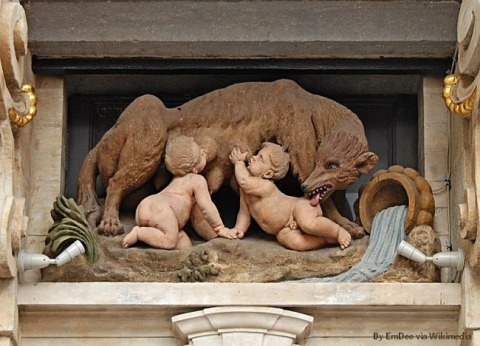
Query:
Professor, does the fact that children raised by wolves cannot function in human society show that there is no human nature?
Reply:
There are said to have been a few cases of this sort of thing, but no, you are working with a flawed definition of “nature.” As you are using the term, our nature is merely our innate behavior, fixed patterns of action which do not have to be learned. If you use the term that way, then just because there are so few such patterns – just because we might learn to act all sorts of ways, or fail to learn to act in the ways expected -- it seems that we haven’t any nature.
However, our nature includes much more than innate behavior. It is better to think of it as a bundle of natural potentialities, distinct to human beings, which must unfold if we are to attain our full development and live well. In a properly human environment, these potentialities can fully unfold, but in a subhuman environment, they can’t. That is why children raised by wolves cannot function in human society.
If there were no human nature, then children would flourish equally whether they grew up among humans, wolves, or ants. In ant society, they would thrive as though ants; in wolf society, as though wolves; and in human society, as humans. What we find is that in an ant society, they can’t function at all. In a wolf society, they can function but not thrive, for although they may be able, say, to catch rabbits, natural human potentialities such as language, rational inference, and the desire for truth and beauty have no chance to develop in them. Only in a human society can they flourish.
Another way to think of this is that the natural habitat for human beings includes not only physical features of the environment, such as food, oxygen, dry land, and a certain range of temperature, but also social features of the environment, such as parents, friendship, conversation, and worship. Aristotle and Thomas Aquinas rightly say that man is “by nature” a social and political animal – “social” meaning that we live together and cooperate, “political” meaning that we provide for justice and take thought for the common good. When they say this, their claim isn’t that we form our communities by instinct, or even that we cannot live without them. Rather they mean that these communities are our natural habitat, so that without them, we cannot live well. A good life for wolves is not a good life for us.